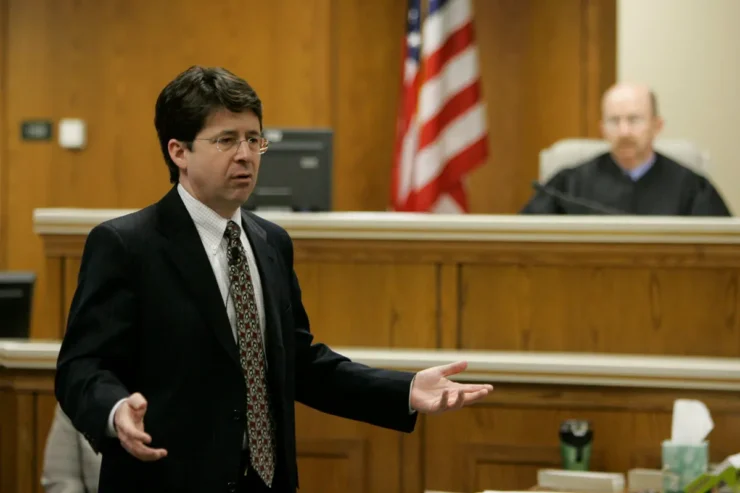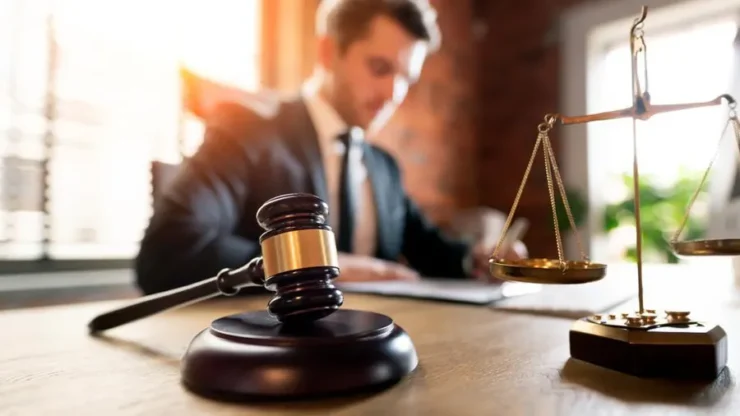Welcome, legal aficionados! If you’re a fan of crime dramas, you’ve likely heard the phrase ‘You have the right to remain silent.’ This statement is a staple of police arrests, but why exactly is it so important? With the guidance of an experienced criminal defense attorney, let’s dive deeper into the crucial role this right plays when you’re interviewed or arrested by the police.
The Power of Silence: A Constitutional Shield
In the United States, the Fifth Amendment to the Constitution safeguards the right to remain silent, designed to prevent self-incrimination. This pivotal legal protection means that you’re under no obligation to answer police questions that might incriminate you. A seasoned criminal defense attorney would equate your silence to a protective shield in the face of potential charges – it’s a right you should leverage.
Your Words as Potential Evidence

It’s an often underappreciated fact: Anything you say to law enforcement can, and frequently will, be utilized against you in a court of law. Even statements that seem harmless can be manipulated and interpreted in ways that work against your interests. Any practiced criminal defense attorney will affirm: the less you say, the less material there is that could potentially incriminate you.
The Stress Factor in Police Interrogations
Police interviews and interrogations are not everyday conversations; they are high-stakes, high-pressure scenarios designed to extract information. The stress and anxiety during such encounters can cause you to speak inaccurately, omit essential details, or worse, confess to crimes you didn’t commit. Retaining your silence until you have a criminal defense attorney present can help you avoid falling into these potential pitfalls. Keep in mind, police officers are trained professionals in the art of information extraction – you deserve a professional ally in your corner too.
The Unexpected Danger of Innocuous Information
In the context of police interactions, the notion of ‘too much information’ takes on a whole new level of significance. Even sharing innocent or seemingly irrelevant information with law enforcement can lead to unwanted consequences. Something as basic as confirming your location at a particular time could inadvertently link you to a crime scene. A competent criminal defense attorney can help identify what information, however innocent it might seem, could potentially harm your case.
The Necessity of Legal Representation

Staying silent is not solely about avoiding self-incrimination; it’s also about waiting until you have the right legal representation. A criminal defense attorney can provide invaluable guidance on when it’s appropriate to speak, what information to disclose, and how to communicate it effectively. They are skilled negotiators who understand how to navigate the intricate landscape of police interviews and interrogations.
When to Speak: Asserting Your Rights
While it’s vital to maintain silence during police interactions, there are moments when speaking up is not only important but necessary. The key phrases being, “I want to remain silent, and I want to speak to a lawyer.” It’s essential to remember that invoking these rights is not an admission of guilt – it’s a smart utilization of your legal protections.
The Aftermath: Handling the Legal Process

After asserting your right to silence and legal counsel, the next steps can be a labyrinth of legal processes and jargon. Here, the assistance of a criminal defense attorney becomes critical. From initial hearings to potential trials, a defense attorney can support and guide you, ensuring your rights are maintained throughout the process.
Wrapping up, the power of silence during police encounters cannot be overstated. It’s a significant component of your legal rights and can protect you from self-incrimination, the undue stress of police interrogations, and potential misuse of your own words. In essence, it’s your first line of defense.
Dealing with law enforcement can be an unsettling experience. The anxiety, the unfamiliarity, the gravity of the situation – all can cloud your judgment and impede your decision-making. It’s during these moments of uncertainty that the counsel of a seasoned criminal defense attorney becomes crucial. From understanding your rights to formulating a robust defense strategy, an attorney can be your compass in the disorienting world of criminal law.
Moreover, an experienced attorney can provide essential moral and emotional support during these challenging times. They’re not just legal professionals; they’re your allies, your advocates, your pillars of strength in a situation fraught with tension and anxiety. By remaining silent and seeking legal representation, you’re taking a significant step towards protecting yourself and your interests.
Ultimately, understanding the importance of remaining silent when interviewed or arrested by the police is a fundamental aspect of legal awareness. But knowledge alone isn’t enough. Knowing when to speak, what to say, and how to say it requires the expertise of a competent legal professional. So, if you ever find yourself in a situation where you’re facing potential charges, remember: silence is your initial safeguard, and a criminal defense attorney is your indispensable advocate.
In conclusion, the world of law can be complex and daunting, but with silence as your first defense and a skilled lawyer by your side, you can navigate it with confidence and security. After all, the right to silence may be golden, but the guidance of a skilled attorney? That, dear readers, is truly priceless.

